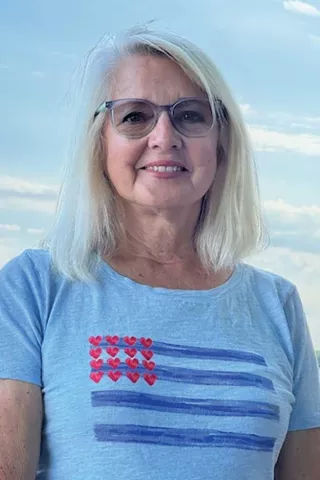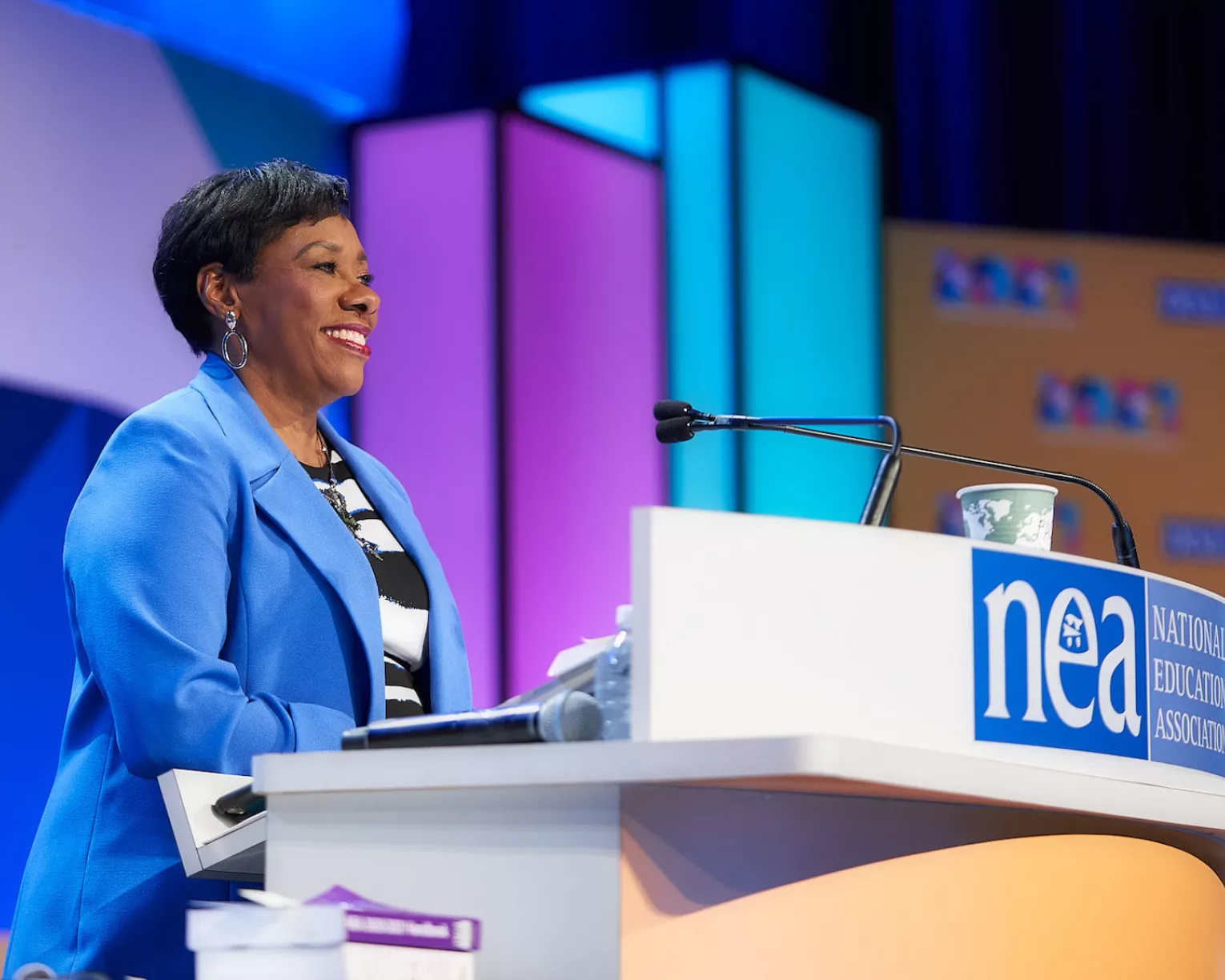When it comes to turning out the vote, NEA-Retired members deliver.
It’s well known that Americans over the age of 55 are the most reliable voters in any given election. They are the most likely to vote in primaries, midterms, and general elections, according to the Pew Research Center.
But here’s a statistic that will knock your socks off: When it comes to voting, NEA’s senior citizens far outpace their peers. While 74 percent of people 65 and older voted in the 2020 election, a whopping 95 percent of NEA members in the same age group voted in that election!
Beyond casting their ballots at phenomenal rates, NEA-Retired members are deeply engaged in all aspects of making our democracy work. That includes educating other voters about the issues at stake in elections, registering folks to vote, and helping voters take advantage of early vote options.
“We go to senior centers and living facilities to help folks who aren’t likely to make it to the polls who still want to exercise that precious right to vote. At the end of the day, I’m just an advocate for voting.”
—Lynda Wolfe Smith, retired teacher, Georgia
Helping older adults exercise their rights
Take Lynda Wolfe Smith, who retired in 2005 after a 30-year teaching career with Atlanta Public Schools. Smith has dedicated countless hours to political action, lobbying elected leaders, testifying before the state legislature, and helping to get out the vote by writing postcards and making calls to voters around election time.
But about five years ago, Smith realized there was even more she could do to engage potential voters. With the support of the Georgia Association of Educators-Retired (GAE-Retired) and an NEA-Retired grant, Smith helped establish a program called Seniors Reaching Seniors that helps prepare older adults to vote.
“We go to senior centers and living facilities to help folks who aren’t likely to make it to the polls who still want to exercise that precious right to vote,” she explains.
Smith and other program volunteers help older adults check their voter registration and request an absentee ballot. The work is entirely non-partisan and aims to remove barriers to voting.
“At the end of the day, I’m just an advocate for voting,” she says.
Smith, the former president of both the Atlanta Association of Educators and the GAE-Retired, says taking the time to help educate and assist others can make all the difference in an election. That’s why NEA-Retired members across the country engage in local, state, and federal
election work.
“We talk about how we want women and immigrants and the LGBTQ+ community to be treated, and how we can move toward more kindness and inclusiveness.”
—Sarah Bingaman, retired ESL teacher, Illinois
Looking to the future

Former Illinois educator Sarah Bingaman wasn’t planning to get political.
When Bingaman retired in 2013 from teaching English as a second language, in Oak Park, Ill., she had gardening, grandkids, and adjunct teaching on her mind.
That was, until 2016.
“The week after the 2016 presidential election, I immediately joined a group called Action for a Better Tomorrow,” Bingaman says. Together, they protested state and national policies that they oppose--including anti-LGBTQ+ and anti-immigrant policies.
During election season, the group sends emails, texts, and postcards, and they go door-to-door, talking with voters about how the candidates’ priorities would affect their communities.
Though it is a partisan group, members focus most on how they want the world to be. “We talk about how we want women and immigrants and the LGBTQ+ community to be treated, and how we can move toward more kindness and inclusiveness,” Bingaman says.
Living in a conservative pocket of the blue state of Illinois, Bingaman says things have become more encouraging over time.
“When we first started doing education events, at community parades for example, we got a lot of negative response,” she says. “But that has eased continuously over the last seven years. Now often when we’re in the parades, we get thumbs-up, we get cheers.”
“We’re keeping our eyes on the future.”
As a third-generation union worker, retired Atlanta teacher Lynda Wolfe Smith says “being a radical” is in her DNA. Her father and grandfather were union reps for the longshoremen in Alabama.
Take This Pledge!
Seniors Rock the Vote!


